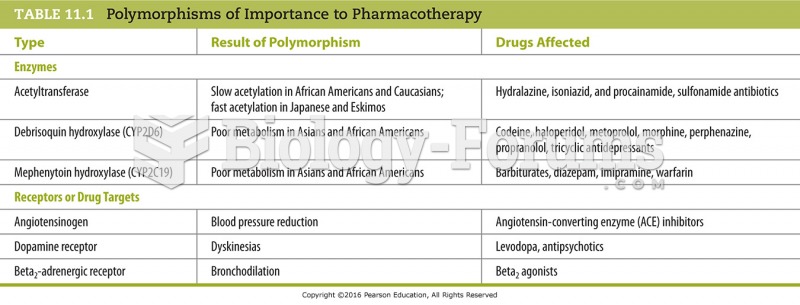|
|
|
It is important to read food labels and choose foods with low cholesterol and saturated trans fat. You should limit saturated fat to no higher than 6% of daily calories.
To maintain good kidney function, you should drink at least 3 quarts of water daily. Water dilutes urine and helps prevent concentrations of salts and minerals that can lead to kidney stone formation. Chronic dehydration is a major contributor to the development of kidney stones.
Critical care patients are twice as likely to receive the wrong medication. Of these errors, 20% are life-threatening, and 42% require additional life-sustaining treatments.
In ancient Rome, many of the richer people in the population had lead-induced gout. The reason for this is unclear. Lead poisoning has also been linked to madness.
When blood is exposed to air, it clots. Heparin allows the blood to come in direct contact with air without clotting.
 Paland and Lynch demonstrated the importance of sexual reproduction in reducing the frequency of mal
Paland and Lynch demonstrated the importance of sexual reproduction in reducing the frequency of mal
 When using an interpreter, the nurse should pose questions directly to the patient, not the interpre
When using an interpreter, the nurse should pose questions directly to the patient, not the interpre





